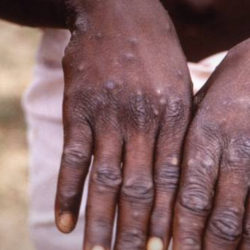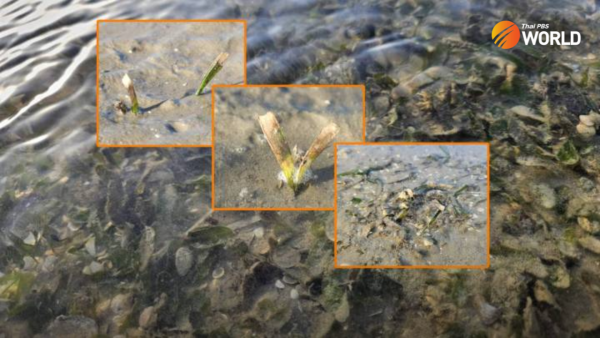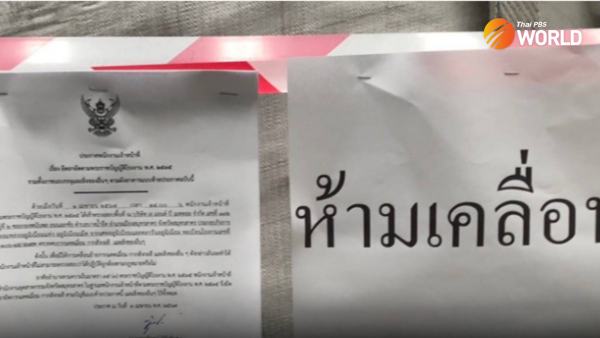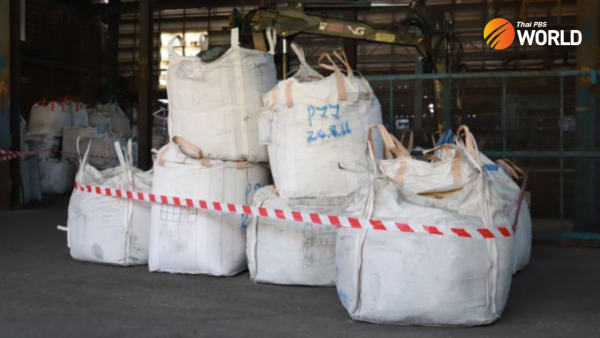Working towards a greener, happier city
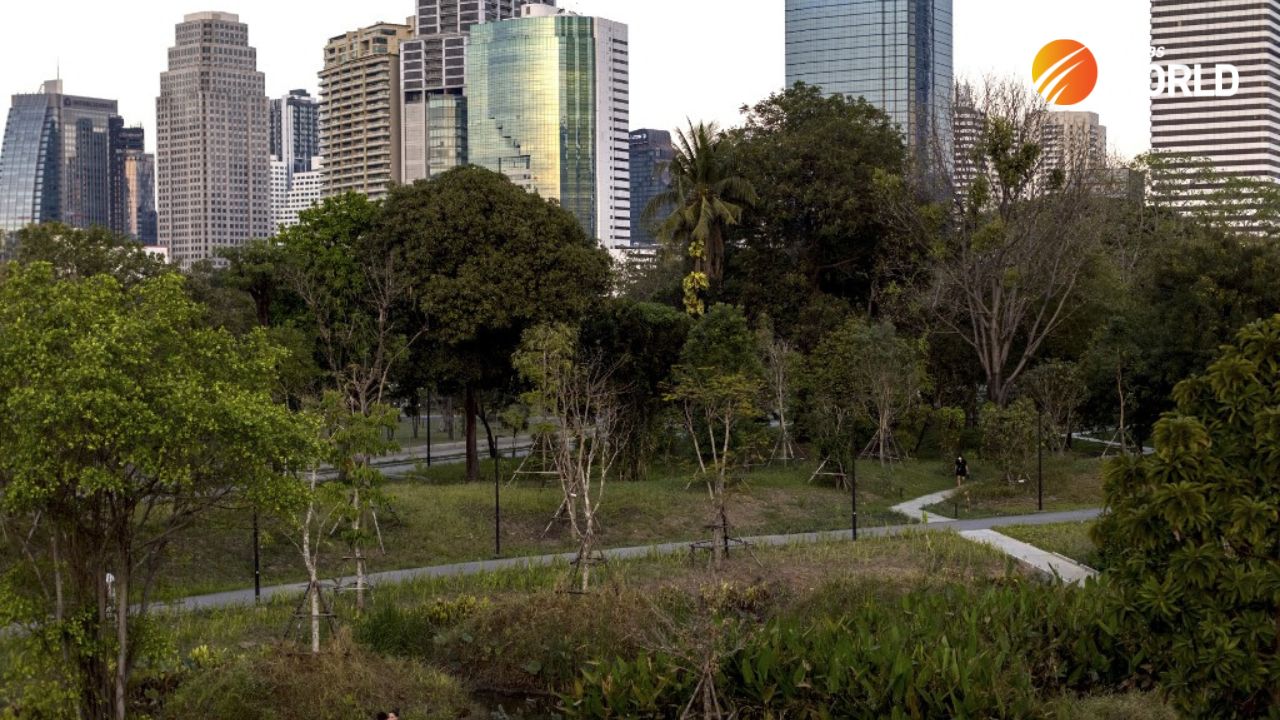
Trees and green spaces tend to make us feel happier. Who doesn’t enjoy walking or jogging in the park surrounded by lush greenery or looking out of a window at colorful shrubs and plants? We feel less stressed and more restored, thus improving our health. However, Bangkok residents don’t experience nature’s healing properties as much as they should simply because the city doesn’t have enough green.
To solve this problem, the Bangkok Metropolitan Administration (BMA) has come up with several projects and plans, among them the “15 Minute Pocket Parks” and “a City-Wide Tree Planting” projects being touted by new Bangkok Governor Chadchart Sittipunt. This is to ensure that green spaces are more accessible to all urbanites.
But much more has to be done if a great green city is to become a reality.
Urban tree advocate Oraya Satabutr who is a co-founder and board member of Big Trees Project (Rak Mai Yai Foundation), talked exclusively to Thai PBS World about City Hall’s tree management, what needs to be improved in order to reach its ambitious green city goals and how alliances and city residents can collaborate for greater success.
Big Trees Project works to connect people, a network of partners and organizations to plant, nurture and preserve trees in the capital as well as help solve some of the environmental issues. The foundation also provides education on tree planting and care.
Skilled workforce is key to success
The shortage of skilled staff members is one of the long-standing problems that impede the BMA’s effort to effectively manage its tree resources, Oraya notes.
“The BMA may need to get more staff and should have a particular unit responsible for the maintenance of trees and green spaces in the capital,” she says.
In addition to caring for trees and maintaining green areas, staff members of the Department of Public Cleansing, supervised by the head of District Offices, are tasked with waste management, according to her.
She urges residents to help keep the city including public green spaces clean to help reduce the staff’s workload.
“I’ve noticed the BMA’s staff collecting litter left behind around the Benjakitti Park. Please don’t be a litterbug. Your waste is your responsibility,” Oraya says.
Proper tree management may require a tree surgeon or ‘arborist’ as they are more properly called.
Professional arborists are well trained in tree health, proper pruning and maintenance of trees. They also work to ensure that the right trees are planted where they will flourish and green spaces are well managed.
“Trees always thrive when they’re planted in the right places,” she says.
The BMA may also need to upskill their staff to help them perform better, the big tree enthusiast notes.
People have complained that trees in the capital are poorly pruned with too much foliage being removed from the upper canopy. Others say new plants are often replaced by dead and dying ones.
Oraya says Big Trees Project has teamed up with the Thai Arboriculture Association to run training sessions for the BMA’s staff since 2016 on how to keep big trees strong and healthy and how to prune them properly. But activities have slowed considerably over the past two years due to the pandemic.
“The staff are doing well with caring for small ornamental trees and shrubs, but not big trees. We have taught them how to prune urban trees properly according to arboricultural practices and how to treat an ailing tree,” she says.
Ensuring all staff are on the same page
Oraya says units responsible for the maintenance and management of trees and green areas in the capital should work closely together and apply similar tree maintenance and management practices.
Two units are handling the tasks: the Department of Public Park under the BMA’s Environment Department; and the Department of Public Cleansing supervised by head of District Office.
Bangkok has a total of 50 district offices. Each of them works independently to manage and care for the trees and green spaces under its jurisdiction.
To achieve this, a working group was set up to develop guidelines for tree maintenance and management in urban areas. The group comprises representatives from related agencies including the BMA, district offices, the Metropolitan Electricity Authority, the Royal Forest Department, Big Trees Project, academics and experts.
The guidelines provide an overview of tree management and maintenance including planting, and properly maintaining and pruning trees and plants in all public spaces, from streets to roads and parks.
“With these principles, the BMA should be able to get its staff members on the same page to work better,” she says.
The draft proposal of the green practices has already been submitted to the governor for consideration, she adds.

Collaboration needed to make our city greener
States agencies, the business sector, local communities and Bangkok residents have also to do their part in making Bangkok a green city.
Oraya has urged agencies and private landowners who have unused plots to hand over them the BMA for communal public green space development.
She has also called on them to better manage their land for the safety and well-being of users. Some agencies allow people to use their open green spaces for recreational activities, but these are subject to poor management and low-quality maintenance.
“It would be great if they could improve their areas and make them full public green spaces. This will allow users to make the most of them. It will also enhance their safety,” she says.
Oraya has urged residents to help care for big trees and plants in public places and report any improper maintenance to authorities via the Traffy Fondue application, a tool that helps Bangkok dwellers lodge complaints.
“Some people pour concrete around a tree near their houses. Food vendors pour hot noodle soup over the tree roots. They are killing the plants. We need to educate them,” she says, adding that when concrete is placed over the roots, the plants are not able to absorb water and nutrients.
She has also encouraged them to educate themselves on tree planting and choosing the right plants for their landscapes. Asked what plants are great for urban gardens in Bangkok, she says Thai bungor (salao), Thai crepe myrtle (tabaek), Spanish cherry (pikun) and Yellow elder (Thong Urai), referring to data from the BMA and the Royal Forest Department.
“The plants have the ability to improve outdoor air quality by absorbing pollution and are easy to maintain,” she says
Staying committed to achieving its green goals
The BMA is engaged in several green projects and has created plans in a bid to address the city’s lack of green space.
The city residents now enjoy about 7.6 square meters (sq. m.) of nearby green space per person, which is far below the World Health Organization’s recommendation of 9 sq.m.
The BMA has set an ambitious goal of increasing the ratio of green space to 10 sq. m. per person. The effort is part of its green master plan, the so-called ‘Green Bangkok 2030’ which was launched in 2020, to add sustainable, quality green spaces in the city.
To keep his election promises, Bangkok Governor Chadchart, meanwhile, has worked hand in hand with agencies, businesses, and local communities to create new “15 Minute Pocket Parks’ throughout the city.
Chadchart has also launched a City-Wide Tree Planting project and set a target of planting one million trees within the next four years. He has also made Sundays a Tree-Planting Day in effort to increase public awareness and participation.
Tackling the city’s environmental issues is one of 216 policies Chadchart proposed during his election campaign.
The Governor said he might increase the target to two million trees due to positive public feedback. It’s reported that a large number of residents have registered their intent to plant a tree with the BMA via the new BKK-plant mobile application. In the month following the launch, the administration said it received intent from the public to plant over 1.3 million trees.
By Veena Thoopkrajae with additional report by Sukhumaporn Laiyok


